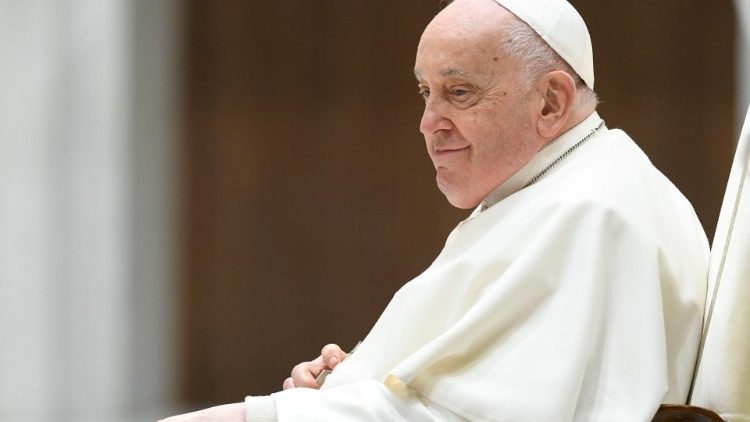
Pope Francis, born Jorge Mario Bergoglio, passed away on April 21, 2025, at the age of 88, leaving behind a transformative legacy that reshaped the Catholic Church and expanded its moral voice on global affairs.
As the first Latin American, the first Jesuit, and the first non-European pontiff in over 1,200 years, his election in 2013 marked a dramatic shift in the direction of the papacy — one rooted in humility, service, and social justice.
Early Life and Rise to the Papacy
Born on December 17, 1936, in Buenos Aires, Argentina, Bergoglio became a Jesuit priest in 1969 and rose through the ranks of the Church during a tumultuous time in Latin America. Known for his austere lifestyle and pastoral care for the poor, he was appointed Archbishop of Buenos Aires in 1998 and later became a cardinal in 2001.
In March 2013, following the resignation of Pope Benedict XVI, Bergoglio was elected pope. He chose the name Francis, inspired by St. Francis of Assisi, a symbol of humility and peace. That choice alone signaled a new era — one that would prioritize compassion over tradition, dialogue over dogma, and action over ceremony.
A papacy of profound change
Pope Francis constantly emphasized a “Church of the poor for the poor.” He called on Catholics and world leaders alike to confront poverty, inequality, and exclusion. He visited slums, washed the feet of prisoners, and criticized the global economic system that “kills” by prioritizing profit over people.
One of his most groundbreaking contributions was his 2015 encyclical Laudato Si’, a passionate plea for ecological justice. He described climate change as a moral issue, called for urgent environmental action, and warned against consumerism and the exploitation of natural resources. It earned him praise far beyond the Church, including from scientists, environmentalists, and the United Nations.
Francis launched efforts to clean up the Vatican bureaucracy and finances, creating new oversight bodies and promoting accountability. He sought to curb corruption within the Curia and improve transparency in the Vatican Bank. Though met with resistance, his reforms were seen as crucial steps toward modernizing the Church’s administration.
Francis positioned himself as a global peacemaker — intervening in crises from Syria to South Sudan, Myanmar to Venezuela. He played a behind-the-scenes role in restoring U.S.-Cuba relations and repeatedly denounced war, nuclear weapons, and arms trafficking. His approach to interfaith dialogue, particularly with Muslims and Jews, fostered goodwill and mutual understanding across religious divides.
The pope’s tone toward previously marginalized groups was notably softer. While upholding Church doctrine, he called for compassion toward LGBTQ+ persons, famously saying, “Who am I to judge?” He welcomed divorced and remarried Catholics back into the Church and emphasized that pastoral care should be guided by mercy, not rigid rules.
The challenges and unfinished business
Despite these accomplishments, Pope Francis’ tenure was not without significant challenges and criticisms.
Sexual abuse scandals
The gravest unresolved issue of his papacy was the global sexual abuse crisis. Although he implemented new policies and established mechanisms like the Pontifical Commission for the Protection of Minors, many survivors and advocates argued that progress was slow, and accountability often insufficient. Critics said he at times failed to act decisively, especially early in his papacy, and protected clergy accused of abuse.
Limited orogress on women’s roles
Francis expressed support for increasing the role of women in the Church but resisted calls for women’s ordination. While he appointed women to high-ranking Vatican roles and opened more opportunities for female theologians, the structural exclusion of women from ordained ministry remained unchanged — a point of growing frustration among Catholic reformers.
Tensions within the church
Francis’ progressive stance ignited opposition among conservative factions within the Church, particularly in Europe and North America. His efforts to decentralize authority, reinterpret teachings on family and sexuality, and open dialogue with other faiths were viewed by some as undermining tradition and orthodoxy. This internal division occasionally paralyzed reform efforts and deepened ideological rifts within the global Church.
Limited impact on Africa and Asia’s growth
Although Francis made significant pastoral visits to countries in Africa and Asia and often spoke out on issues affecting the Global South, his reforms did not always translate into tangible changes in these regions. The Church in Africa and Asia remains deeply conservative on many social issues, and the pope’s inclusive rhetoric was sometimes ignored or resisted by local bishops.
Global legacy
Pope Francis redefined the role of the papacy in the 21st century. He was not merely a spiritual figurehead but a global moral leader whose influence reached beyond Catholicism. His papacy was characterized by humility, radical compassion, and a firm belief in the dignity of every person.
He leaves behind a Church that is more open, more outward-looking, and more attuned to the suffering of the world — but also one still grappling with internal wounds, unresolved scandals, and the tension between tradition and transformation.
As the Church prepares to elect his successor, one thing is clear: Pope Francis changed the conversation. He reminded the world that faith must be lived in action, and that the Gospel’s most powerful message is one of love.

